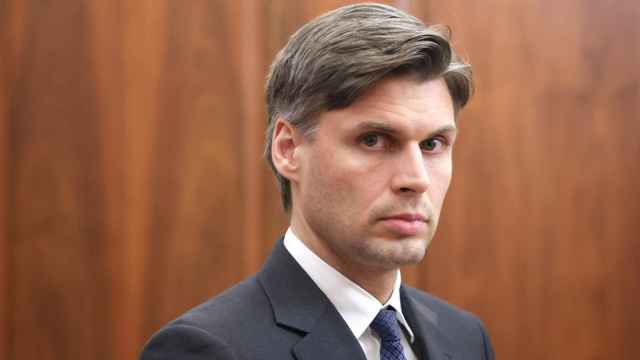LONDON — Britain said relations with Russia had played a part in its refusal to hold a public inquiry into the murder in London of former KGB agent Alexander Litvinenko but denied that this had been the main consideration.
Earlier this month, the government rejected a coroner's request for an inquiry, which he said could have revealed whether Russia was behind the killing, fueling criticism that it did not want details to emerge that could damage improving ties with Moscow.
"It is true that international relations have been a factor in the government's decision-making," Home Secretary Theresa May wrote Friday in a letter to Robert Owen, the coroner overseeing an inquest into the 2006 murder of Litvinenko, a Kremlin critic.
"An inquest managed and run by an independent coroner is more readily explainable to some of our foreign partners, and the integrity of the process more readily grasped," she said, but added that these factors had not been decisive.
Litvinenko, 43, died after drinking tea poisoned with a rare radioactive isotope, polonium-210, in a plush London hotel. From his deathbed, he accused President Vladimir Putin of ordering his murder, a charge Moscow has repeatedly denied.
Under British law, inquests conducted by coroners are held when a person dies unexpectedly to determine the cause of death.
Pre-inquest hearings have heard that Litvinenko, who had been granted British citizenship, had worked for Britain's MI6 intelligence service and that the government had evidence that established a "prima facie case" that Russia was behind his murder.
Owen, a senior judge appointed as coroner for the case, agreed in May to keep government material relating to these claims secret but argued that he could not carry out a proper investigation himself, saying issues of Russian involvement and Britain's failure to protect Litvinenko were crucial.
Litvinenko's family has accused Britain of trying to cover up embarrassing details to protect lucrative business deals and to help mend ties with Moscow, which sank to a post-Cold War low after the murder.
In her letter, May said the decision against an inquiry had been taken at the "highest levels of government," with ministers believing an inquest would suffice to shed light on the death.
"It is the view of the government that, despite the serious concerns you express, an inquest will go a substantial way to addressing or allaying public concern about this incident," she told Owen.
Evidence that could be heard in public would establish how the polonium was brought into Britain, who was carrying it, and the events leading up to the murder, she said.
May said an inquest was only required to determine how someone died, not the broader circumstances or who was responsible, and an inquiry would be expensive at a time when austerity-hit Britain is trying to slash spending.
If "public concern remains" at the end of the inquest, she said ministers could then judge whether a further inquiry that could consider evidence in secret should be established.
A Message from The Moscow Times:
Dear readers,
We are facing unprecedented challenges. Russia's Prosecutor General's Office has designated The Moscow Times as an "undesirable" organization, criminalizing our work and putting our staff at risk of prosecution. This follows our earlier unjust labeling as a "foreign agent."
These actions are direct attempts to silence independent journalism in Russia. The authorities claim our work "discredits the decisions of the Russian leadership." We see things differently: we strive to provide accurate, unbiased reporting on Russia.
We, the journalists of The Moscow Times, refuse to be silenced. But to continue our work, we need your help.
Your support, no matter how small, makes a world of difference. If you can, please support us monthly starting from just $2. It's quick to set up, and every contribution makes a significant impact.
By supporting The Moscow Times, you're defending open, independent journalism in the face of repression. Thank you for standing with us.
Remind me later.





